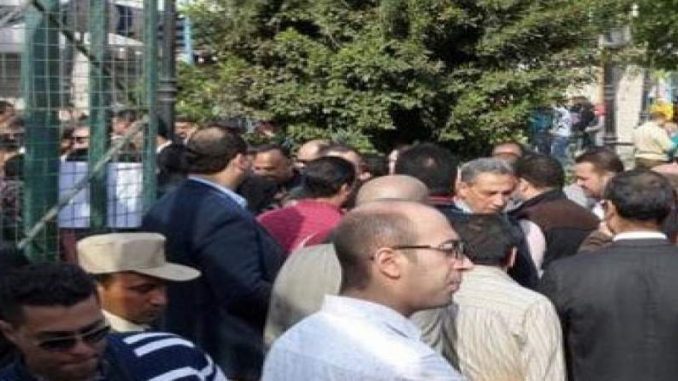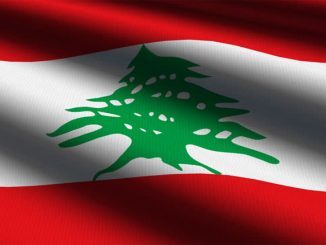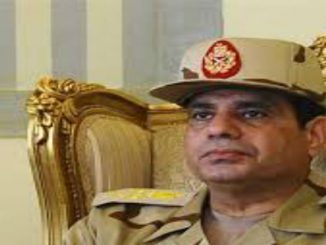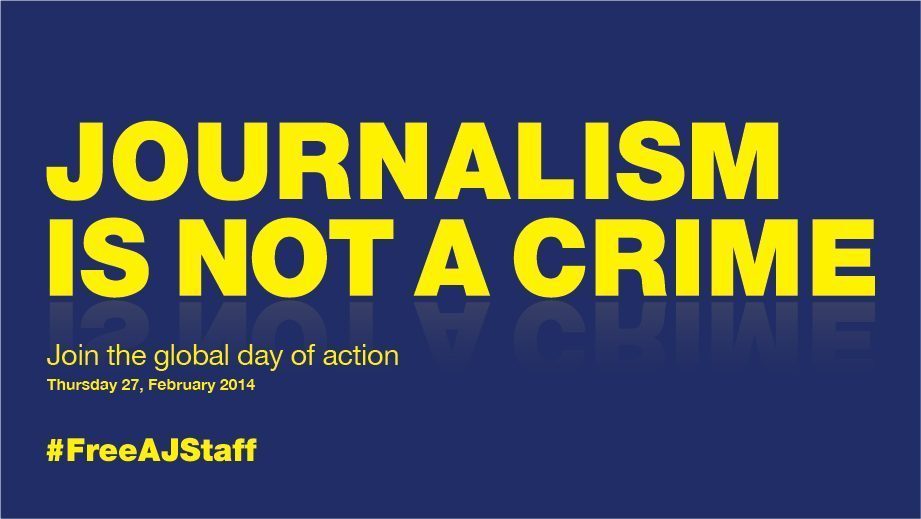
On May 23, Labor Unions’ elections started in Egypt after 12 years of its suspension amid accusations that the Egyptian government is excluding independent labor organizations’ leaders from the electoral race in a bid to have the upper hand on labor unions, which caused a headache for the regime in the wake of the January 25 Revolution.
The last labor elections were held under former President Hosni Mubarak in 2006, before being suspended again due to the political unrest that followed the revolutions on January 25, 2011, and on June 30, 2013.
During a news conference May 24, Minister of Manpower and Immigration Mohamed Saffan said that workers are taking part in historic elections that allow them to freely choose their representatives for the first time in 12 years. “Our goal is to produce a trade union organization that expresses workers with the utmost transparency,” he added.
The elections are held under judicial supervision, and they are divided into three phases: the enterprise union committees elections (one committee per governorate or city to represent enterprises, factories and companies) on May 23-24 and May 31; the trade union councils elections (one council for every profession or industry) on June 7; and the general trade union elections (one union at the national level) on June 13.
While several rights activists — most prominently Saad Shaaban, the president of the independent Egyptian Democratic Labor Congress — complained about pressure being placed on the Ministry of Manpower and Immigration in the elections to exclude independent trade unions leaders from the electoral race, officials attributed these exclusions to the candidates’ failure to prepare the required papers.
These elections come in the wake of the adoption December 19 of a new trade union law that reinforced government control over trade unions and forced both official and independent unions to regularize their position in accordance with this law.
Accordingly, many independent trade union organizations that complained about harassment during the regularization process, and said that this prompted them to freeze their activity.
Independent trade unions emerged during the last years of the era of Mubarak following both the privatization of companies such as Omar Effendi S.A.E and the layoffs that ensued. Moreover, they emerged following several strikes against the regime and spread after the January 25 Revolution until they overpowered government organizations.
However, after the military coup on June 30, the regime started imposing restrictions on these unions. In March 2016, it refused to recognize them and went so far as to deem them illegitimate entities.
Hamdi Ezz, the president of the tourism trade union, one of the independent unions established after January 25, 2011, was excluded from the election race. He said that he was surprised he was banned after the elections supervisory committee did not provide any valid reasons for his removal from the race.
He explained that the Ministry of Manpower and Immigration took an “intransigent” attitude with them and refrained from announcing by the legal deadline the final list of candidates for the trade union elections. He noted that the ministry did not announce the results of the appeals they filed against their exclusion.
The Arabic Network for Human Rights Information, which is a civil society organization, monitored what it described as a ” systematic exclusion process” that excluded more than 1,500 active trade union leaders from the list of candidates in the Cairo governorate alone.
Ezz said,”Some powerful labor leaders have been excluded to make room for other pro-government official unions and tend to business owners at the expense of workers.”
He stressed that he filed a lawsuit before the Court of Administrative Justice, and that he would send a memorandum to the International Labor Organization (ILO) containing all of the violations committed against trade union leaders.
Saffan responded to the accusations of interference in the elections by saying, “We shall not heed such accusations. Let those who have evidence submit such evidence.”
A leader in the Egypt Trade Union Federation, which is affiliated with the regime, said on condition of anonymity that hundreds of candidates were excluded from the elections for “security” reasons.
When the trade union law was promulgated in December, the ILO expressed concern over its impact on the freedom of association in the country.
Kamal Abbas, the general coordinator of the Center for Trade Union and Workers Services and a member of the Egyptian National Council for Human Rights, said that the Ministry of Manpower and Immigration clearly and explicitly violated the trade union law and its executive regulations.
He said that it has blatantly meddled in the regularization process of the organizations in order to reduce the chances of independent unions in the elections and prevent them from defending workers’ rights.
He added,”There was an abnormal and unreasonable intransigence on the part of the Ministry of Manpower directorates in Cairo and the [other] governorates, and despite the completion of the required papers in accordance with the executive regulations of the trade union law, the directorates were demanding papers not stipulated in the law in order to prevent unions from regularizing their position.”
Abbas concluded, “The government has controlled trade unions in those elections. We shall not give up. We resorted to the judiciary in order to invalidate the trade union law before the Constitutional Court and invalidate the exclusion of prominent leaders from the electoral race. With the emergence of independent trade unions, things need to change.”



